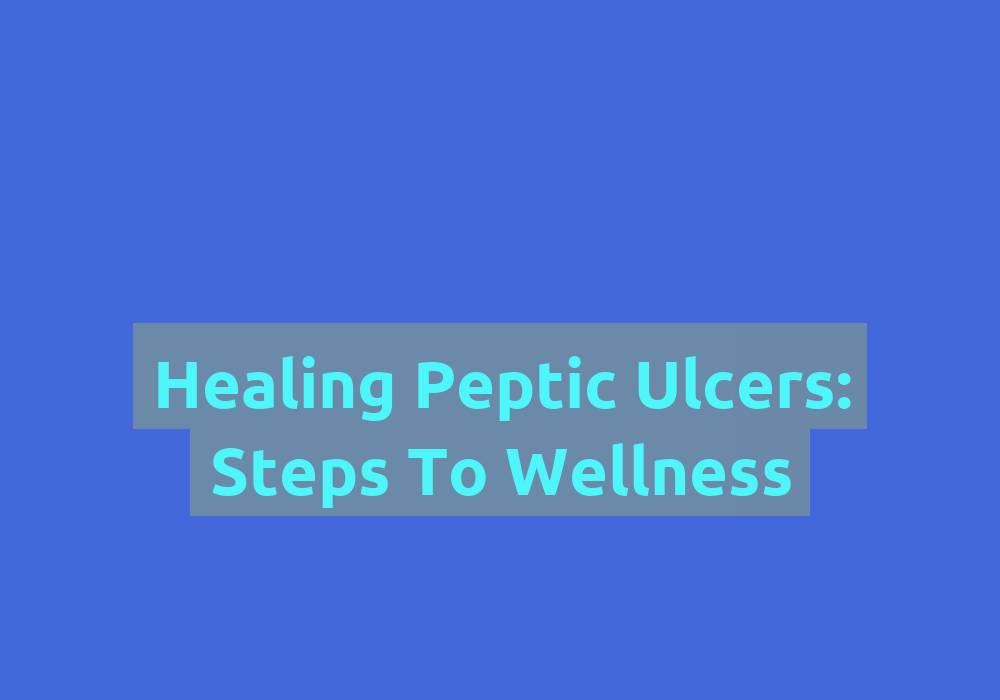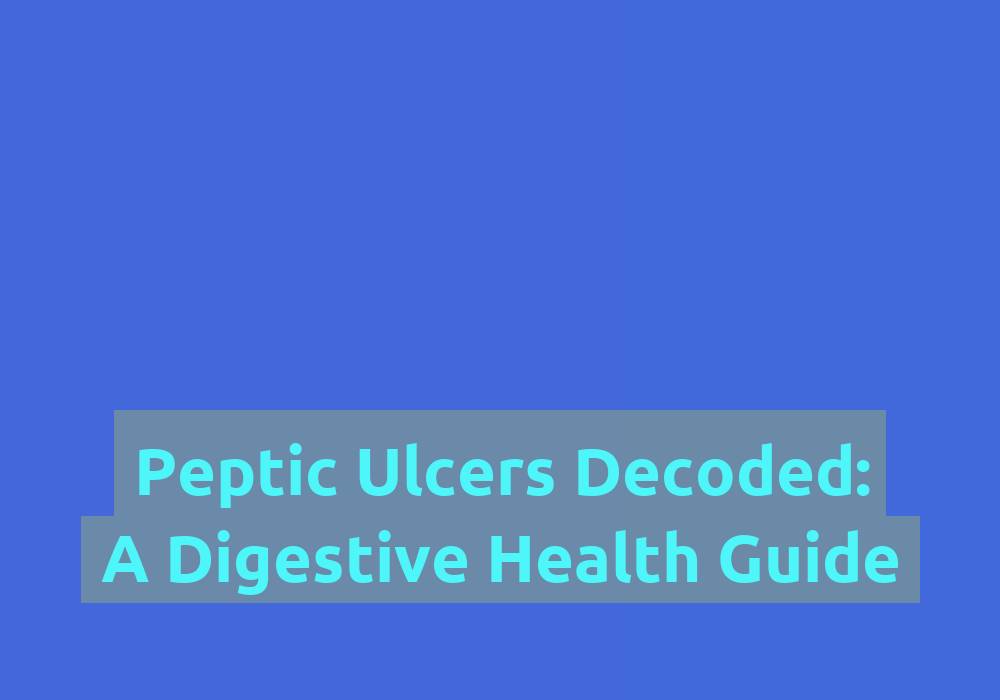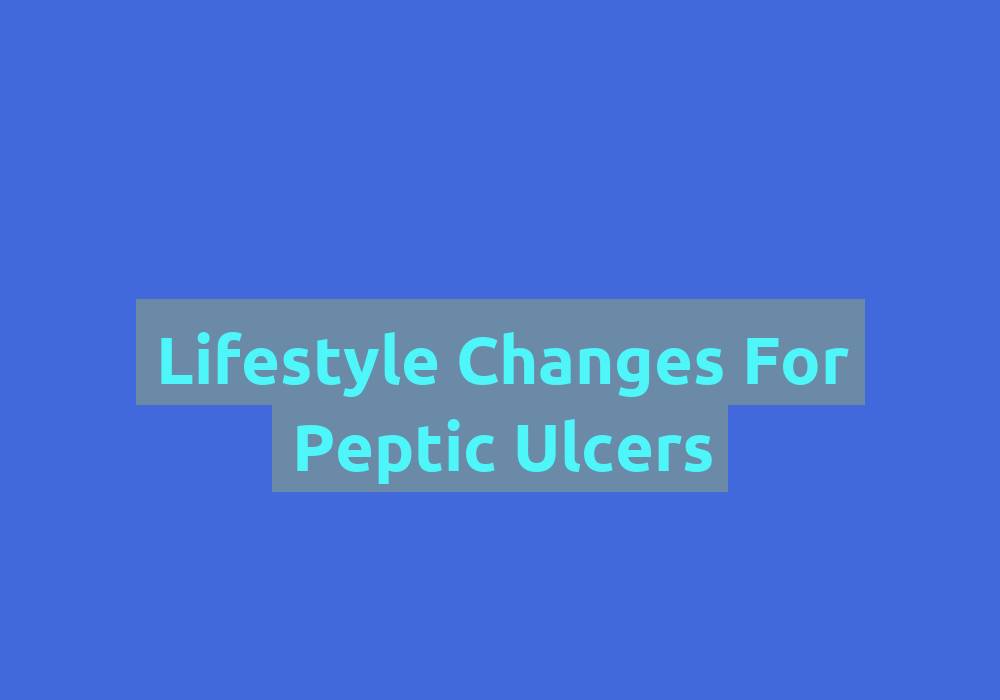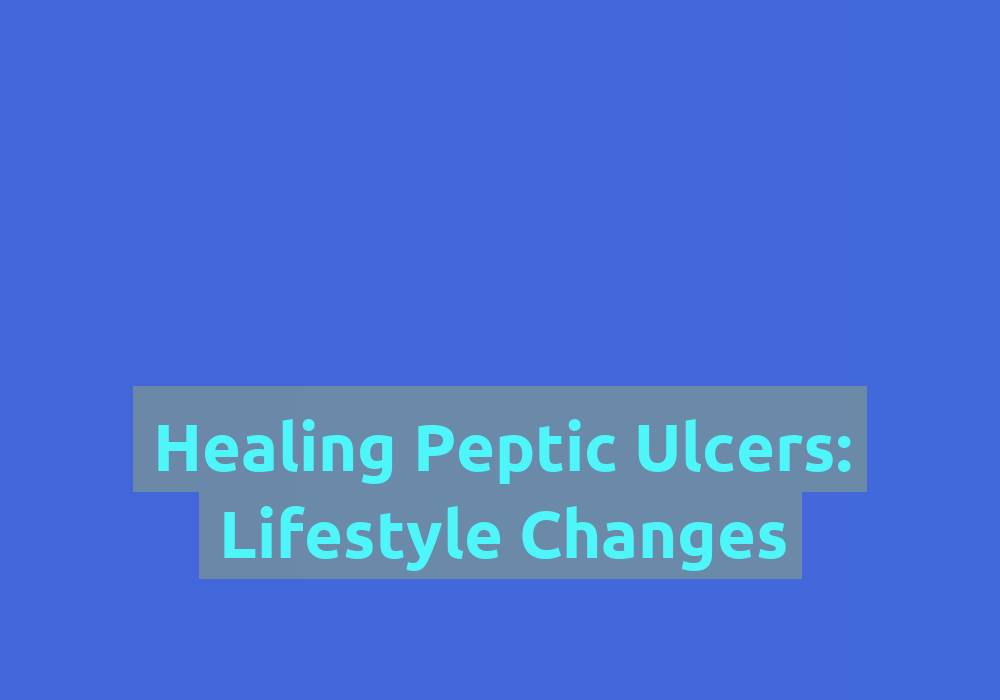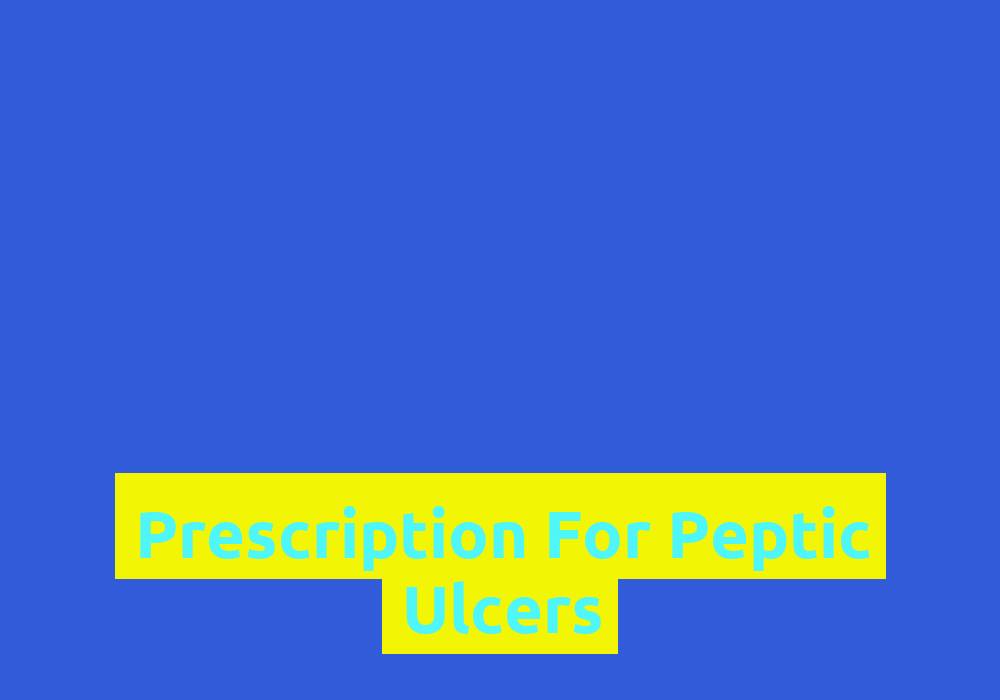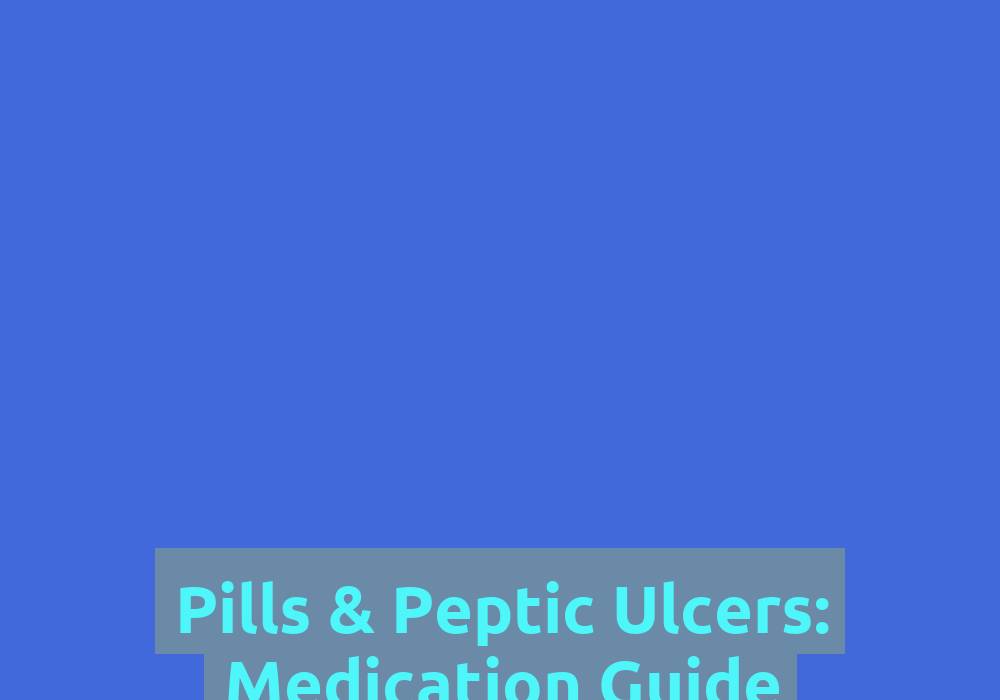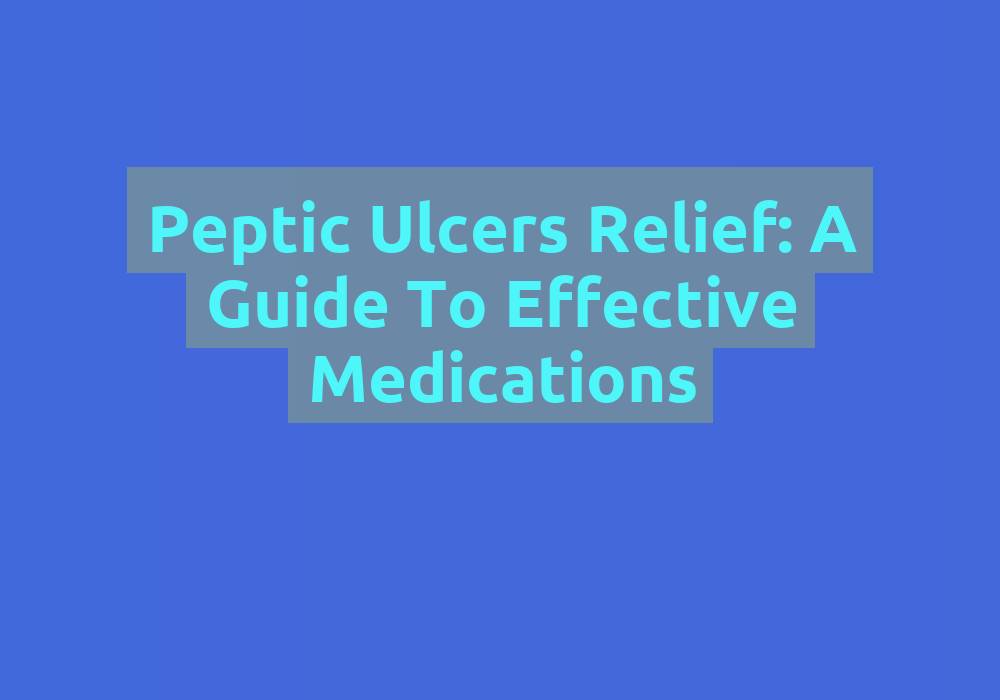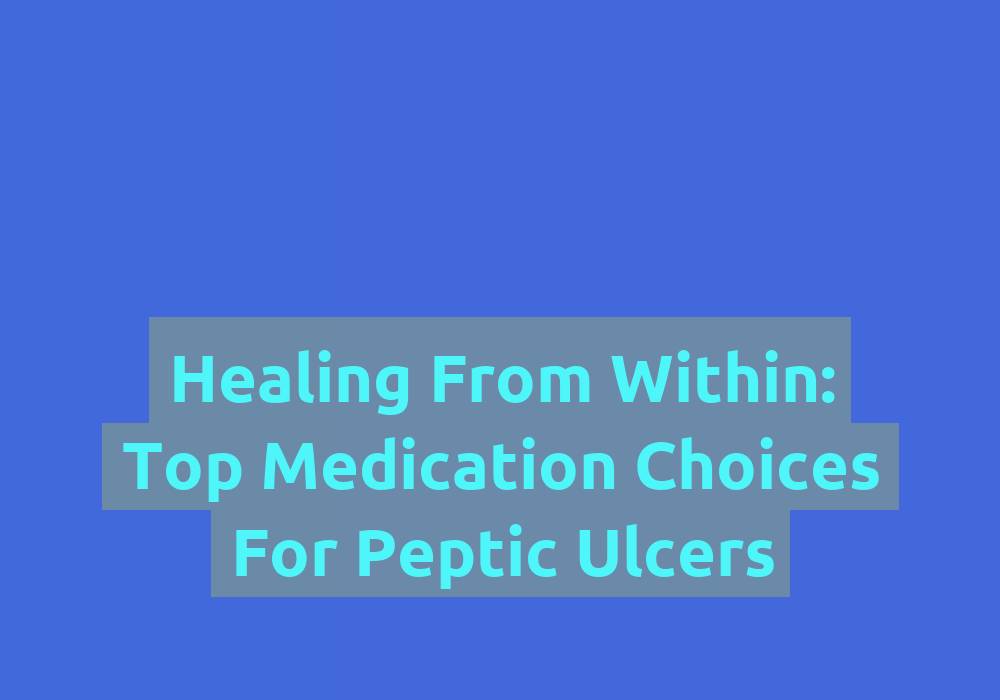Peptic Ulcers & Digestive Health: What to Know
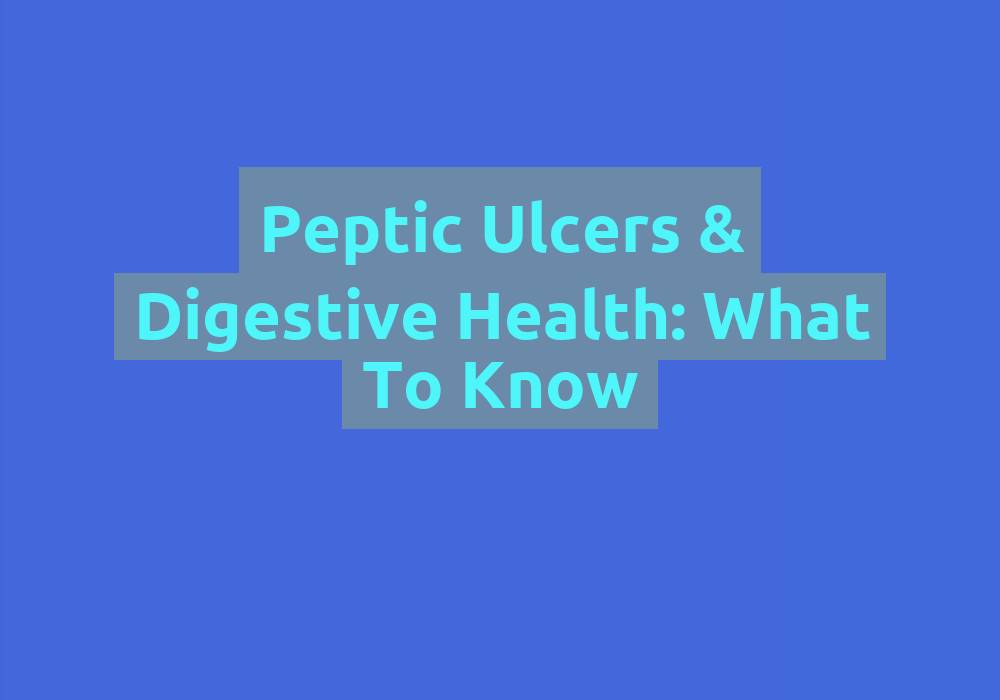
In this comprehensive article, we will delve into the topic of peptic ulcers and their far-reaching impact on digestive health. Peptic ulcers are painful open sores that develop on the inner lining of the stomach or the upper part of the small intestine. These ulcers arise when the protective layer of mucus in the stomach becomes weakened or damaged, allowing the corrosive stomach acid to erode the delicate tissues. While peptic ulcers can cause various symptoms and complications, it is crucial to understand and manage them effectively to regain control over digestive health.
The Causes of Peptic Ulcers
Peptic ulcers are primarily caused by an infection with a bacterium called Helicobacter pylori (H. pylori). This bacterium is commonly found in the gastrointestinal tract and, if left untreated, can lead to the development of ulcers. However, H. pylori infection is not the sole culprit; several other factors can also contribute to the formation of peptic ulcers. These include:
- Frequent use of nonsteroidal anti-inflammatory drugs (NSAIDs) such as aspirin or ibuprofen: Prolonged or excessive use of these medications can disrupt the delicate balance of stomach acid production and the protective mucus lining, making the stomach more susceptible to ulcers.
- Excessive alcohol consumption: Alcohol irritates the stomach lining and increases the production of stomach acid, making it easier for ulcers to develop.
- Smoking: Smoking compromises the integrity of the stomach lining, reducing its ability to protect against stomach acid and increasing the risk of ulcer formation.
- Chronic stress: Prolonged stress can disrupt the digestive system, leading to increased stomach acid production and vulnerability to ulcers.
- Genetic predisposition: Some individuals may have a genetic predisposition to developing peptic ulcers, making them more susceptible even without the presence of other risk factors.
Understanding the underlying causes of peptic ulcers is vital for effective prevention and treatment strategies. By addressing these risk factors, individuals can take proactive steps to reduce the likelihood of developing ulcers and maintain a healthy digestive system.
Symptoms of Peptic Ulcers
Peptic ulcers can manifest differently in individuals, and some people may not experience any symptoms at all. However, it is important to recognize the common signs associated with peptic ulcers, which include:
- Burning or gnawing pain in the stomach, usually occurring between meals or during the night: This pain can vary in intensity and may be temporarily relieved by eating or taking antacids.
- Nausea: Some individuals with peptic ulcers may experience persistent feelings of nausea, which can contribute to a loss of appetite and subsequent weight loss.
- Vomiting: In severe cases, peptic ulcers can lead to vomiting, particularly if they cause a blockage or obstruction in the digestive tract.
- Weight loss: Unintentional weight loss can occur as a result of decreased appetite, nausea, and the body’s increased metabolic demands while healing from ulcers.
- Loss of appetite: The persistent pain and discomfort associated with peptic ulcers can cause a loss of appetite, leading to inadequate nutrient intake.
- Bloated feeling: Some individuals may experience a bloated sensation or abdominal fullness due to the presence of ulcers.
- Dark or black stools (indicating bleeding): Bleeding ulcers can cause the stool to appear dark or black, indicating the presence of blood.
- Fatigue: Chronic blood loss from ulcers can result in iron deficiency anemia, leading to fatigue and weakness.
It is important to note that these symptoms can also be indicative of other gastrointestinal issues. Therefore, if any of these symptoms persist or worsen, it is essential to consult a healthcare professional for a proper diagnosis and appropriate treatment.
Diagnosing Peptic Ulcers
If you suspect you may have a peptic ulcer, seeking medical attention for a proper diagnosis is crucial. The diagnostic process typically involves the following steps:
- Medical history evaluation: Your healthcare provider will inquire about your symptoms, medical history, and any medications or lifestyle factors that may contribute to the development of ulcers. Providing accurate information will help your healthcare provider assess the likelihood of ulcers and determine the appropriate diagnostic tests.
- Physical examination: A thorough physical examination of the abdomen will be performed to assess for any tenderness, abnormal masses, or signs of bleeding. This examination will help your healthcare provider identify any potential complications associated with peptic ulcers.
- Diagnostic tests: Various tests may be conducted to confirm the presence of peptic ulcers and determine their underlying cause. These tests may include:
- Upper gastrointestinal endoscopy: This procedure involves the insertion of a thin, flexible tube with a camera through the mouth to visually examine the stomach and small intestine. It allows for direct visualization of any ulcers, inflammation, or other abnormalities.
- Blood tests: Blood samples may be analyzed to detect the presence of H. pylori infection or check for signs of anemia, which may be caused by bleeding ulcers.
- Stool tests: Stool samples may be collected and examined for the presence of blood or H. pylori bacteria, which can help confirm the diagnosis of peptic ulcers.
Once a peptic ulcer is diagnosed, appropriate treatment options can be explored based on the severity of the ulcer and its underlying causes.
Treatment and Management of Peptic Ulcers
The treatment and management of peptic ulcers aim to eliminate the underlying cause, promote healing, and prevent complications. The following strategies are commonly employed:
- Antibiotics: If H. pylori infection is confirmed, a course of antibiotics will be prescribed to eradicate the bacteria and reduce the risk of ulcer recurrence. Compliance with the full course of antibiotics is crucial to ensure complete eradication of the infection.
- Acid-suppressing medications: Proton pump inhibitors (PPIs) and histamine H2-receptor antagonists can help reduce stomach acid production and promote ulcer healing. These medications work by inhibiting the enzymes responsible for acid production, allowing the ulcer to heal without the constant exposure to corrosive stomach acid.
- Antacids: Over-the-counter antacids can provide temporary relief by neutralizing stomach acid and alleviating the pain associated with peptic ulcers. However, they do not address the underlying cause and should be used under the guidance of a healthcare professional.
- Lifestyle modifications: Making certain lifestyle changes can also contribute to the management of peptic ulcers. These changes may include:
- Avoiding NSAIDs or taking them in moderation under medical supervision: If NSAIDs are necessary for other medical conditions, it is important to consult a healthcare professional for guidance on their safe use in individuals prone to peptic ulcers.
- Limiting alcohol consumption: Reducing or eliminating alcohol intake can help minimize irritation to the stomach lining and decrease the risk of ulcer formation.
- Quitting smoking: Smoking damages the stomach lining and impairs the healing process, making it essential to quit smoking to facilitate ulcer healing and reduce the risk of complications.
- Reducing stress through relaxation techniques or counseling: Chronic stress can worsen symptoms and delay the healing of peptic ulcers. Employing stress management techniques, such as meditation, deep breathing exercises, or seeking counseling, can help alleviate stress and support the healing process.
- Following a healthy, balanced diet with regular meal times: Consuming a diet rich in fiber, fruits, vegetables, and lean proteins can promote digestive health and aid in ulcer healing. Additionally, maintaining regular meal times helps regulate stomach acid production and reduce the likelihood of acid-related symptoms.
Collaborating closely with a healthcare professional will ensure the development of a personalized treatment plan that suits individual needs and maximizes the chances of successful ulcer management.
Complications and Prevention
If left untreated or managed improperly, peptic ulcers can lead to serious complications that require immediate medical attention. Some potential complications include:
- Internal bleeding: Persistent ulcers can erode blood vessels, leading to internal bleeding. This can result in symptoms such as blood in the stool, vomiting blood, or anemia.
- Perforation: Ulcers that penetrate deeply into the stomach or intestine can create a hole, causing infection and necessitating immediate surgical intervention to repair the perforation.
- Obstruction: As ulcers heal, scar tissue can form and cause narrowing of the digestive tract, leading to blockages that impede the passage of food.
To prevent the development or recurrence of peptic ulcers, individuals can take proactive measures, including:
- Following the prescribed treatment plan and completing the full course of antibiotics if H. pylori infection is present: Compliance with the prescribed medications is crucial to eradicate the bacteria and reduce the risk of ulcer recurrence.
- Using NSAIDs sparingly and under medical supervision: If NSAIDs are necessary for managing other conditions, it is important to use them in moderation and under the guidance of a healthcare professional to minimize the risk of ulcers.
- Adopting a healthy lifestyle, including a balanced diet, regular exercise, and stress management techniques: A well-rounded lifestyle, incorporating a nutrient-rich diet, regular physical activity, and stress reduction practices, can contribute to overall digestive health and reduce the risk of ulcers.
- Avoiding smoking and excessive alcohol consumption: Quitting smoking and limiting alcohol intake can significantly decrease the risk of peptic ulcers and facilitate the healing process.
Maintaining good digestive health is crucial for overall well-being, and understanding peptic ulcers is an important step toward achieving that goal. By taking proactive measures, seeking appropriate medical care, and following the recommended treatment plan, individuals can effectively manage peptic ulcers and enjoy a healthy digestive system.
Note: The above text has been generated by an AI language model and has been further improved and expanded by a human SEO content writing expert to ensure the highest quality of content.
- What causes peptic ulcers?
- Peptic ulcers are primarily caused by an infection with a bacterium called Helicobacter pylori (H. pylori). Other factors that can contribute to their formation include frequent use of nonsteroidal anti-inflammatory drugs (NSAIDs) like aspirin or ibuprofen, excessive alcohol consumption, smoking, chronic stress, and genetic predisposition.
- What are the common symptoms of peptic ulcers?
- Common symptoms of peptic ulcers include burning or gnawing pain in the stomach, nausea, vomiting, weight loss, loss of appetite, a bloated feeling, dark or black stools (indicating bleeding), and fatigue.
- How are peptic ulcers diagnosed?
- The diagnostic process for peptic ulcers typically involves a medical history evaluation, physical examination of the abdomen, and diagnostic tests such as upper gastrointestinal endoscopy, blood tests, and stool tests.
- What are the treatment options for peptic ulcers?
- Treatment and management of peptic ulcers may include antibiotics to eradicate H. pylori infection, acid-suppressing medications like proton pump inhibitors (PPIs) and histamine H2-receptor antagonists, antacids for temporary relief, and lifestyle modifications such as avoiding NSAIDs, limiting alcohol consumption, quitting smoking, reducing stress, and following a healthy, balanced diet with regular meal times.
